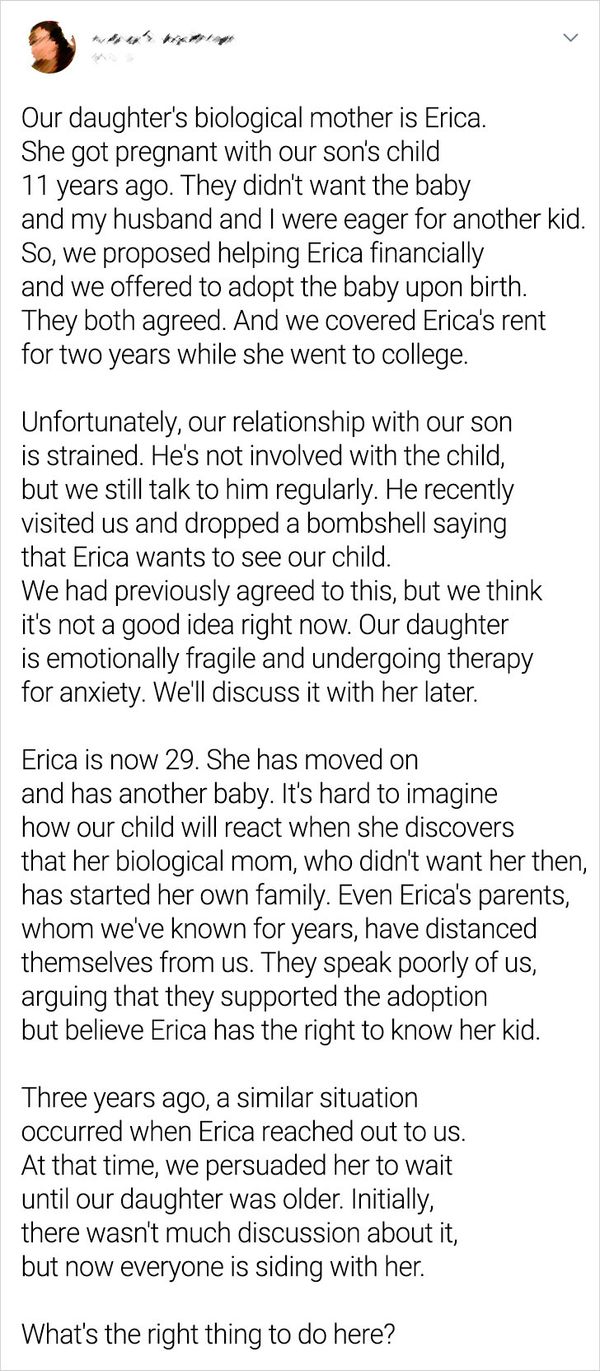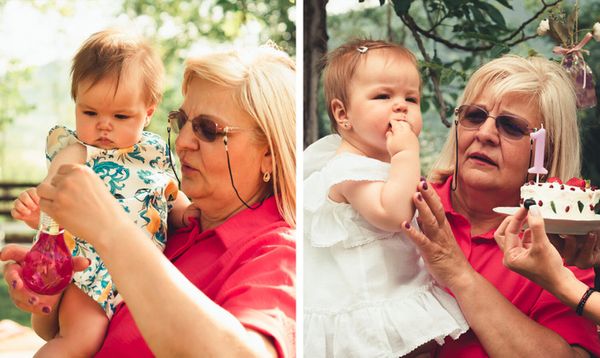
Adoption can be a wonderful way for adults to become parents and provide loving families for children. But sometimes, unexpected twists can lead to complex family situations. In today’s story, a couple found themselves becoming guardians to their own granddaughter. Now, they face a significant quandary that requires open and honest communication.

To navigate this situation, we have gathered recommendations from professionals who specialize in dealing with similar circumstances. Here are the key steps they suggest:
Step 1: Engage in Assertive Communication
The first step is to have assertive communication with all parties involved. The goal is to come to an agreement that prioritizes the well-being of the child above all else. It’s important to recognize that circumstances and perspectives can change over time.
Step 2: Talk to Your Daughter
While we understand your desire to shield your daughter from the reality of her adoption, it is crucial to have this conversation with her before anyone else does. If she learns about it from someone else, she may experience negative emotions towards her biological parents and you. Open communication is key in maintaining trust and understanding.

Understanding Emotional Challenges
Adopted children may experience emotional distress related to the separation from their birth mothers, even if they were adopted as infants. The nine months spent in their mother’s womb create an initial bond and connection. Acknowledging this situation and promoting open communication can significantly assist the child in coping with their emotions during this time.
Addressing Suspicions and Questions
Your daughter may have questions or suspicions about her adoption, even if she shares physical similarities with you. Factors like age differences between parents or comments from other children can confuse her. It’s important to be prepared to address these questions with honesty and compassion.

The Benefits of Open Adoption Conversations
Initiating conversations about adoption at an early age, around 5 or 6, can help children comprehend and integrate the concept naturally. Here’s why it’s crucial and beneficial for children to be informed about their adoption:
- A fundamental right to know their life narrative: Children have the right to know their identity and essential details about their genetics, social background, and ethnicity.
- A need for a dependable and trustworthy family: Keeping important information from them can lead to feelings of isolation and a sense of not being understood.
- Crucial for emotional growth: Open communication allows children to understand and express their thoughts and emotions while receiving empathy and affection from their loved ones.

By embracing open and honest communication, you can help your daughter navigate her adoption journey with understanding and support. Remember, the well-being of the child should always be the top priority.



